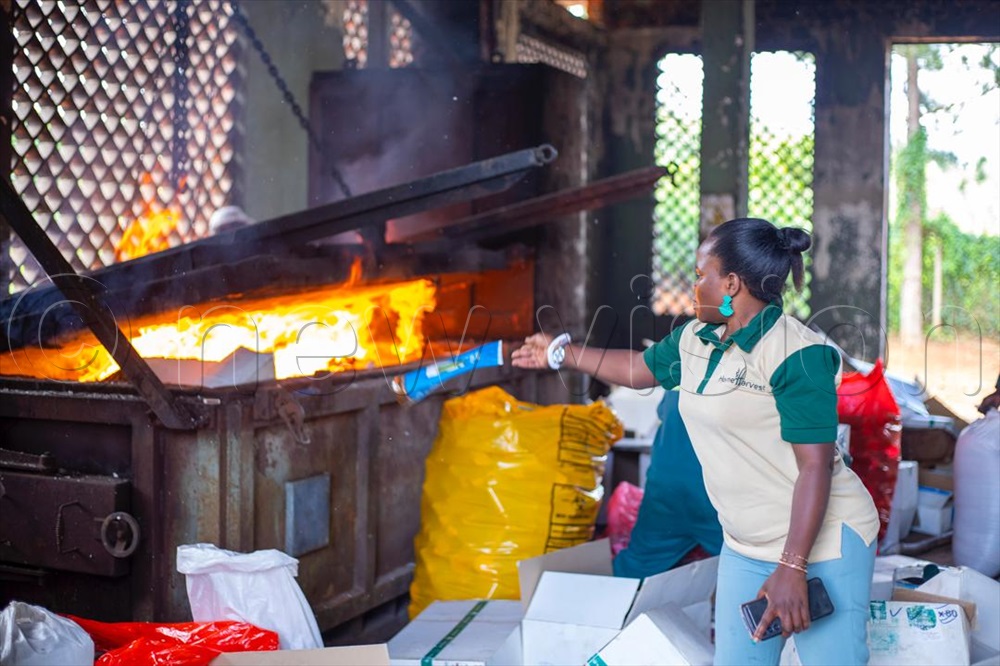The Ministry of Agriculture Animal Industry and Fisheries (MAAIF) has destroyed over 7,400kgs of expired seeds.
The consignment, which was never sold due to the COVID-19 lockdown had been imported into the country by Home Harvest, a company dealing in seed and other farm inputs.
The consignment was valued at over sh880million. The seed was stocked at the peak of COVID-19 and it could not be sold to farmers on time due to the long lockdown. As a result, most of it expired before it was planted.
The seed destruction process was facilitated in partnership with the Ministry of Agriculture Animal Industry and Fisheries (MAAIF), Uganda Seed Trade Association and NLS Waste Services.
“All seed has validity period after which it is no longer viable – it may not germinate or germinate but does not perform to its expectation. Seed which has lost validity is not 100% productive,” says Charles Sendaaza, a seed inspector with the National Seed Certification Service at the Ministry of Agriculture.
According to Sendaaza, for any seed to be allowed on the market, it should have a germination percentage of not less than 75%. The germination percentage is determined at the national seed testing lab located in Kawanda.
The Uganda National Seed and Plant Act requires seeds that has lost viability to be disposed of at owner’s cost and criminalizes the sale of such seeds to farmers.
Most companies do self-checks and arrange seed destruction with the supervision of the Ministry of Agriculture, as was the case with Home Harvest.

“We advise that other seed companies emulate the example of Home Harvest to destroy any unviable seed through proper channels to curb the vice of counterfeiting and poor seed in the country. This is a bold step since there are costs involved, but for the greater good of the agricultural sector,” says Sendaaza.
Home Harvest speaks out
“Like any other sector, agricultural sector was heavily affected by covid – 19 as a result of the lockdown and other trade barriers. Home Harvest was not in isolation of this unforeseeable calamity. The company received assorted vegetable seeds from her supplier (Bakker Brothers in the Netherlands) and unfortunately the consignment arrived at the peak of the pandemic, affecting its uptake by the smallholder farmers thus making a large percentage unviable,” says Franco Alia, head of business and partnerships at Home Harvest.
Home Harvest abides by government and international laws governing seed trade hence with permission and supervision of the agriculture ministry, vegetable seed weighing 7,489kgs worth over sh800m was destroyed.
This is to maintain Home Harvest integrity and follow its norm of not compromising quality regardless of the financial loss to the company, Alia says.
“We appreciate our farmers/clients who were able to bear with us during this calamity and tolerated the recalling of the seed from the market and, the agriculture ministry ‑ department of Crop Inspection and Certification and Uganda Seed Trade Association for collectively working together to improve the agricultural sector in Uganda,” Alia adds.
LEAD PHOTO CAPTION: A Home Harvest staff loading the incinerator with expired seeds. This was at NLS waste treatment facility on Gayaza road, Kampala early this month. Photos by Joshua Kato





